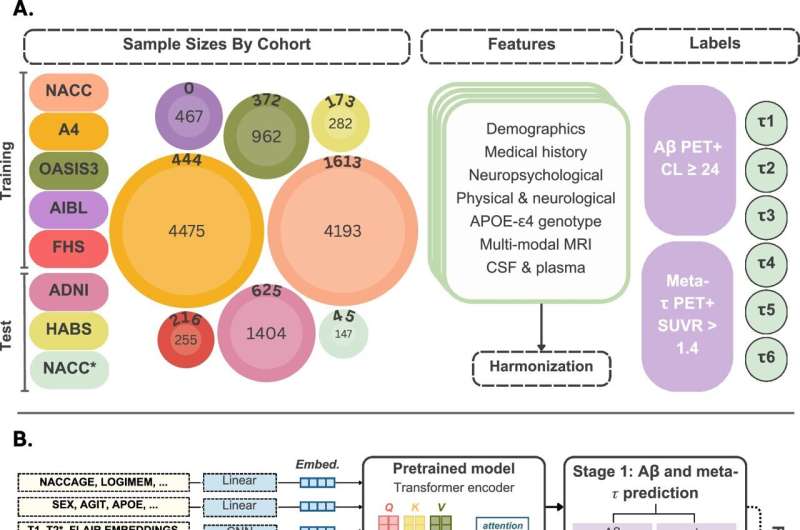“We used data from multiple international research cohorts, allowing us to predict the presence of these sticky proteins, and even checking specific brain areas,” explains corresponding author Vijaya B. Kolachalama, Ph.D., FAHA, associate professor of medicine and computer science at Boston University.
While popular new blood tests can somewhat detect signs of Alzheimer’s, they can’t reveal exactly where in the brain the issues are occurring—unlike our AI tool, which provides important location-specific detail.
Kolachalama and his team gathered information from seven different cohorts, totaling 12,185 participants, including their age, health history, memory test scores, genetic information and brain scans. They trained an AI model on this data to learn patterns that match the presence of sticky proteins seen in expensive scans and even designed the model to work if some of the information was missing. They then tested it on a separate group of people not used in training and found that the AI correctly predicted who had high amyloid or tau levels.

